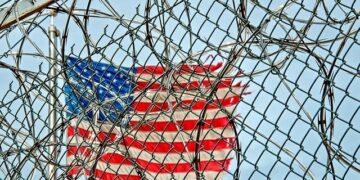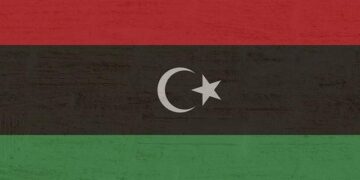Turkey has embarked on mass trials in the wake of widespread protests ignited by the recent detention of Istanbul’s mayor, Ekrem İmamoğlu. As one of the most significant political figures in Turkey, İmamoğlu’s arrest has sparked outrage, drawing thousands to the streets in demonstrations against what many perceive as a politically motivated confinement. The trials, involving dozens of individuals reportedly linked to the protests, highlight the escalating tensions between the Turkish government and dissenting voices. As citizens demand accountability and justice, the international community watches closely, raising concerns over human rights and the state of democracy in Turkey. This article delves into the implications of these trials and the broader context surrounding the unrest in Istanbul.
Turkey’s Judicial Response to Civil Unrest Unfolds in Istanbul
In a swift and controversial response to escalating civil unrest in Istanbul, authorities have initiated mass trials, targeting individuals involved in protests triggered by the recent detention of the city’s mayor. This wave of legal action reflects a troubling trend in the Turkish government’s handling of dissent, as many citizens fear that these trials will serve as a tool for suppressing free speech and stifling political opposition. Observers note that the nature of the trials suggests a systematic effort to deter future protests, with thousands reportedly facing charges ranging from public disorder to incitement of violence.
As the judicial proceedings unfold, several key issues have emerged, raising questions about the fairness and transparency of the legal process. Critics argue that many of the detainees have been denied adequate legal representation and that the judiciary is compromised by political influence. Among the various factors at play are:
- Heightened Security Measures: Increases in police presence during protests have escalated tensions between demonstrators and law enforcement.
- Media Restrictions: Reports indicate that coverage of the trials has been severely limited, raising concerns about public awareness and access to information.
- International Reactions: Human rights organizations are closely monitoring the situation, urging the Turkish government to uphold democratic principles.
| Trial Impact | Public Sentiment |
|---|---|
| Increased Arrests | Widespread Fear |
| Potential Sentencing | Calls for Justice |
| Revised Protest Laws | Demand for Freedom |
Analyzing the Implications of Mass Trials on Political Freedoms
The recent rise of mass trials in Turkey, triggered by widespread protests over the detention of Istanbul’s mayor, raises significant questions about the erosion of political freedoms in the country. Authorities have justified these trials as necessary measures to maintain public order, yet critics argue they are a thinly veiled attempt to suppress dissent and intimidate opposition voices. The implications of such legal actions extend beyond the immediate political landscape, potentially undermining the rule of law and fostering an environment of fear among citizens. As dissenting opinions are increasingly criminalized, the very essence of democratic engagement is at risk of being stifled.
In light of these developments, it is crucial to examine how mass trials may impact various aspects of civil liberties. Stakeholders, including international human rights organizations, legal experts, and civil society, must take a stand against these judicial overreaches. Here are a few concerns that arise from the current situation:
- Chilling Effect on Free Speech: The prosecution of dissenters can deter individuals from expressing their views.
- Judicial Independence: The manipulation of the legal system for political purposes undermines public trust.
- Polarization of Society: Mass trials exacerbate divisions and create an adversarial environment.
Recommendations for Upholding Human Rights Amidst Political Tensions
As mass trials unfold in Turkey, the international community must remain vigilant and proactive in its efforts to uphold human rights amidst rising political tensions. It’s essential for global organizations, governments, and civil society to:
- Monitor developments closely: Utilize technology and media to document human rights abuses, ensuring that those affected are not voiceless.
- Engage in diplomatic dialogues: Encourage open discussions with Turkish authorities regarding the importance of respecting judicial independence and freedom of expression.
- Support local NGOs: Provide resources and platforms for grassroots organizations that work to protect human rights within Turkey, amplifying their voices and initiatives.
Moreover, establishing clear consequences for violations is crucial. This can include:
| Action | Potential Consequences |
|---|---|
| Imposing sanctions | Restricted access to international financial systems |
| Suspending trade agreements | Economic repercussions leading to domestic pressure for change |
| Mobilizing public opinion | Increased global awareness and advocacy |
These strategies not only foster accountability but also encourage a culture of respect for fundamental freedoms in Turkey and beyond.
The Conclusion
In conclusion, the initiation of mass trials in Turkey in response to the protests surrounding the detention of Istanbul’s mayor underscores a pivotal moment in the nation’s political landscape. As tensions continue to rise, both domestically and internationally, the implications of these proceedings will be closely scrutinized. The government’s actions not only reflect its stance on dissent but also raise critical questions about the future of democratic processes in Turkey. As the situation unfolds, the eyes of the world remain fixed on Istanbul, where the intersection of politics, justice, and civil rights will play a crucial role in shaping the narrative of this ongoing conflict. The outcome of these trials could set a significant precedent for the rights of political figures and the broader landscape of political expression in the country.














